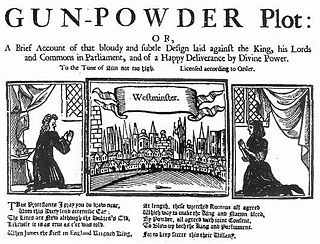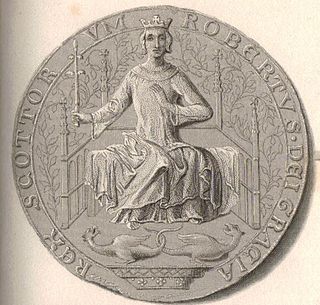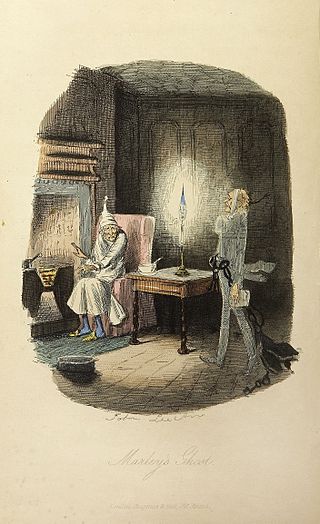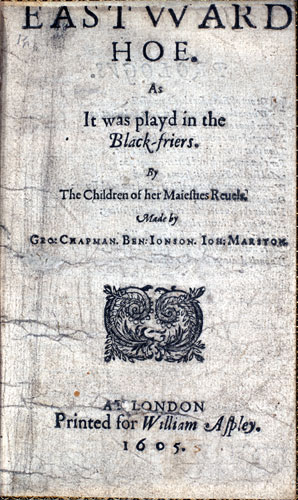Related Research Articles

Edwin Austin Abbey was an American muralist, illustrator, and painter. He flourished at the beginning of what is now referred to as the "golden age" of illustration, and is best known for his drawings and paintings of Shakespearean and Victorian subjects, as well as for his painting of Edward VII's coronation. His most famous set of murals, The Quest and Achievement of the Holy Grail, adorns the Boston Public Library.

The Gunpowder Plot of 1605, in earlier centuries often called the Gunpowder Treason Plot or the Jesuit Treason, was a failed assassination attempt against King James I by a group of provincial English Catholics led by Robert Catesby who sought to restore the Catholic monarchy to England after decades of persecution against Catholics.

The Importance of Being Earnest, A Trivial Comedy for Serious People is a play by Oscar Wilde. First performed on 14 February 1895 at the St James's Theatre in London, it is a farcical comedy in which the protagonists maintain fictitious personae to escape burdensome social obligations. Working within the social conventions of late Victorian London, the play's major themes are the triviality with which it treats institutions as serious as marriage and the resulting satire of Victorian ways. Some contemporary reviews praised the play's humour and the culmination of Wilde's artistic career, while others were cautious about its lack of social messages. Its high farce and witty dialogue have helped make The Importance of Being Earnest Wilde's most enduringly popular play.

Robert Browning was an English poet and playwright whose dramatic monologues put him high among the Victorian poets. He was noted for irony, characterization, dark humour, social commentary, historical settings and challenging vocabulary and syntax.

A Christmas Carol. In Prose. Being a Ghost Story of Christmas, commonly known as A Christmas Carol, is a novella by Charles Dickens, first published in London by Chapman & Hall in 1843 and illustrated by John Leech. A Christmas Carol recounts the story of Ebenezer Scrooge, an elderly miser who is visited by the ghost of his former business partner Jacob Marley and the spirits of Christmas Past, Present and Yet to Come. After their visits, Scrooge is transformed into a kinder, gentler man.

Robert II was King of Scots from 1371 to his death in 1390. The son of Walter Stewart, 6th High Steward of Scotland, and Marjorie, daughter of King Robert the Bruce, he was the first monarch of the House of Stewart. Upon the death of his uncle David II, Robert succeeded to the throne.

Ebenezer Scrooge is the protagonist of Charles Dickens's 1843 novella A Christmas Carol. At the beginning of the novella, Scrooge is a cold-hearted miser who despises Christmas. The tale of his redemption by three spirits has become a defining tale of the Christmas holiday in the English-speaking world.

Robert Catesby was the leader of a group of English Catholics who planned the failed Gunpowder Plot of 1605.

Daniel Deronda is a novel written by Mary Ann Evans under the pen name of George Eliot, first published in eight parts (books) February to September 1876. It was the last novel she completed and the only one set in the Victorian society of her day. The work's mixture of social satire and moral searching, along with its sympathetic rendering of Jewish proto-Zionist ideas, has made it the controversial final statement of one of the most renowned Victorian novelists.

William Charles Macready was an English actor.

Lord Polwarth, of Polwarth in the County of Berwick, is a title in the Peerage of Scotland. It was created in 1690 for Sir Patrick Hume of Polwarth, 2nd Baronet, Lord Chancellor of Scotland from 1696 to 1702. In 1697 he was further created Lord Polwarth, of Polwarth, Redbraes and Greenlaw, Viscount of Blasonberrie and Earl of Marchmont, also in the Peerage of Scotland. Upon the death of his grandson, the third Earl, the creations of 1697 became dormant (unclaimed).
Francis Tresham, eldest son of Thomas Tresham and Muriel Throckmorton, was a member of the group of English provincial Catholics who planned the failed Gunpowder Plot of 1605, a conspiracy to assassinate King James I of England.

William Parker, 13th Baron Morley, 4th Baron Monteagle, was an English peer, best known for his role in the discovery of the Gunpowder Plot. In 1605 Parker was due to attend the opening of Parliament. He was a member of the House of Lords as Lord Monteagle, the title on his mother's side. He received a letter; it appears that someone, presumably a fellow Catholic, was afraid he would be blown up. The so-called Monteagle letter survives in the National Archives, but its origin remains mysterious.

Eastward Hoe or Eastward Ho! is an early Jacobean-era stage play written by George Chapman, Ben Jonson and John Marston. The play was first performed at the Blackfriars Theatre by a company of boy actors known as the Children of the Queen's Revels in early August 1605, and it was printed in September the same year.

Robert Wintour and Thomas Wintour, also spelt Winter, were members of the Gunpowder Plot, a failed conspiracy to assassinate King James I. Brothers, they were related to other conspirators, such as their cousin, Robert Catesby, and a half-brother, John Wintour, also joined them following the plot's failure. Thomas was an intelligent and educated man, fluent in several languages and trained as a lawyer, but chose instead to become a soldier, fighting for England in the Low Countries, France, and possibly in Central Europe. By 1600, however, he changed his mind and became a fervent Catholic. On several occasions he travelled to the continent and entreated Spain on behalf of England's oppressed Catholics, and suggested that with Spanish support a Catholic rebellion was likely.
John Ruthven, 3rd Earl of Gowrie, was a Scottish nobleman who died in mysterious circumstances, referred to as the "Gowrie Conspiracy", in which he and/or his brother Alexander were attempting to kill or kidnap King James VI of Scotland for unknown purposes. The king's retinue killed both brothers during the attack, and the king survived.

Helena Saville Faucit, Lady Martin was an English actress.

Samuel Phelps was an English actor and theatre manager. He is known for his productions of William Shakespeare's plays which were faithful to their original versions, after the derived works by Nahum Tate, Colley Cibber and David Garrick had dominated the stage for over a century.

Alma Murray (1854–1945) was an English actress.

Rushton Hall in Rushton, Northamptonshire, England, was the ancestral home of the Tresham family from 1438, when William Tresham, a veteran of the Battle of Agincourt and Chancellor of the Duchy of Lancaster bought the estate. In the 20th century the house became a private school and it has now been converted to a luxury hotel. The estate is about 227 acres (92 ha) of which 30 acres (12 ha) are formal gardens. The River Ise flows from west to east south of the Hall.
